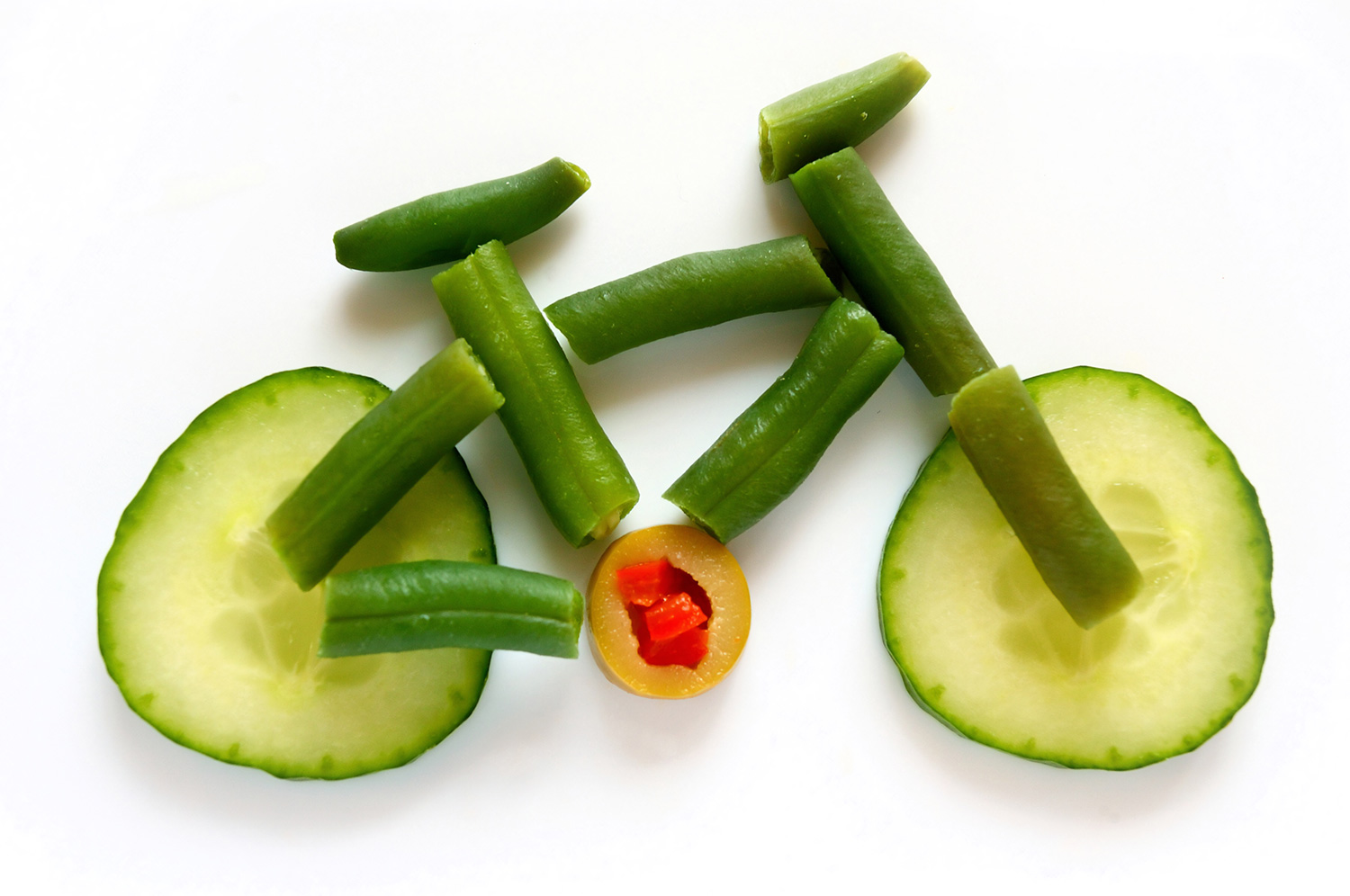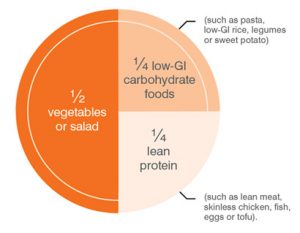

115 Lethbridge St, Penrith
(02) 4729 5100

Changing your diet to improve your Type 2 Diabetes can seem like a daunting task, but rest assured, there are simple food choices you can make that will help you look after yourself, manage your weight and improve risk factors such as high cholesterol levels.
The great news is that the healthier food choices can benefit your whole family, eating a healthy diet is just as important for them as it is for you. This means you don’t have to prepare separate meals or buy special foods – the whole family can enjoy the same healthy meals.
So, let’s dive in. Here are our recommended healthy food choices to help you manage your diabetes.
How much is too much? That does depend on your energy needs, but to get you started, we recommend dividing your servings into quarters. One quarter of your meal will consist of lean protein. One quarter of low-GI carbohydrate foods and the remaining two quarters (yes, half) of your meal will consist of vegetables and/or salad. We don’t mean half a plate of potatoes either – make sure you choose a large variety of brightly coloured vegetables or salad to fill that side of your plate. We highly recommend making an appointment with a dietician to discuss serving sizes and to tailor a diet to suit you and any individual dietary needs you may have.
Carbohydrates are broken down into glucose and become your body’s main source of energy. Low GI (glycemic index) carbohydrates usually have a higher fibre content and break down more slowly than high GI carbohydrates. Low GI is a better choice for people with diabetes and include oats, barley, quinoa, legumes and most non-tropical fruit.
High sugar foods such as sweets, lollies and soft drinks are not healthy food choices and can be very damaging for your body, especially if you have diabetes. We recommend removing these types of food from your diet. If you must have something sweet, consider using sweetener. However, not all sweeteners are healthy so make sure you ask your dietician about the best choice and the amount of sweetener to use.
Triglycerides and LDL cholesterol levels can be elevated in diabetes. Choose healthy fats and reduce trans fats in your diet to help reduce LDL cholesterol levels.
Trans (Bad) Fat
Trans fats are found in a lot of processed foods, fried food, and some baked goods like biscuits, pastries and cakes. Watch out for it on product labels, avoid any foods with ‘hydrogenated oils’ on the label as this is just a fancy name for trans fat.
Healthy Fats
Healthy fats are unsaturated fats which help to reduce your LDL cholesterol levels and your risk of developing heart disease. Choose oily fish, olive oil, nuts, seeds and avocados to increase healthy fats in your diet.
Protein is important for many reasons. In a dietary sense, having lean protein with every meal will make you feel fuller for longer, reducing your temptation to snack between meals. Sources of protein include lean meat, chicken, fish, eggs, nuts and seeds, dairy, soy and legumes.
It is important to stay hydrated, water is best (1-2 litres per day) but you can also consider black, green or herbal teas and coffee in moderation.
Limit your intake of alcohol
Alcohol not only has empty calories but can negatively affect your blood glucose levels and is best avoided in people with diabetes.
Lastly, and arguably most important is to get moving. Regular exercise is good for your mind and body and helps you lose weight and stay strong. Daily exercise with healthy food choices will greatly reduce your risk of developing complications from your diabetes.
The Tindale Medical Hub team works in with relevant health professionals to develop a personalised treatment plan that best fits the needs of each patient.
If you need assistance managing your diabetes your doctor can help. Contact us to arrange an appointment.
This article is intended as a guide only and should not replace medical advice. An accredited dietician can help with food choices, contact Dietitians Association of Australia on 1800 812 942 or visit www.daa.asn.au.
Source: Food choices for people with Diabetes. https://www.ndss.com.au/what-should-i-eat
glycemicindex.com
Diabetes Australia
Dietician Association of Australia

